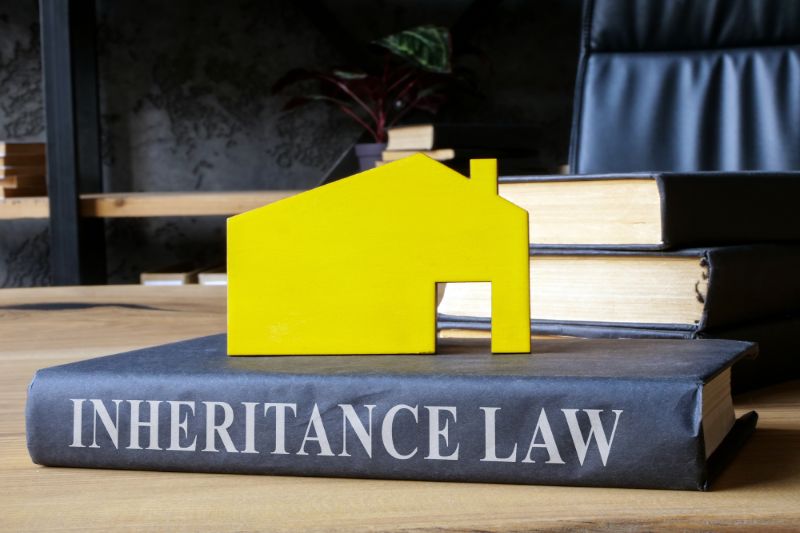Dealing with inheritance tax can be a daunting task, particularly in the aftermath of losing a loved one. Often inheritance tax is something that is forgotten about until it’s too late. One must consider the implications that inheritance tax will have on their loved ones’ financial situation when it comes to setting out a plan for the future.
Understanding how inheritance tax is calculated is essential for anyone considering how to settle their estate, as well as for heirs and beneficiaries poised to inherit assets.
As the saying goes, it pays to be prepared. With that in mind, this article offers a clear breakdown of everything you need to know about inheritance tax so that you can navigate this journey with clarity and confidence.
First of all, what is probate?
Before diving into the topic of inheritance tax, a brief explanation of the probate process is required.
Essentially probate involves the legal distribution of a deceased person’s estate to the relevant beneficiaries. This process requires validation by the Probate Office, ensuring that the will is legitimate and that the executor or appointed administrator is authorised to manage the estate.
While going through probate can be a lengthy and arduous process, essentially the purpose is to protect the beneficiaries and ensure that the wishes of the deceased are carried out respectfully.
When is probate necessary?
Not every estate needs to go through the probate process – this is determined by the value of the deceased’s estate. Typically, probate is required for assets worth over €25,000.
For smaller estates, under the Small Estate Procedure, the distribution process is more streamlined and does not necessitate a full probate application. This threshold, however, can vary depending on the financial institution holding the assets.
In the case of spouses, any jointly owned assets such as a joint bank account or the family home often go directly to the surviving spouse without the need for probate.
The probate application process
Handling the estate of a deceased loved one is a significant responsibility, involving substantial paperwork.
Fortunately, in these modern times, there is now an electronic filing process for probate applications, simplifying the procedure. However, not everyone is tech-savvy, so this is where having the assistance of a probate solicitor can be truly beneficial.
Learn more about the probate process in Ireland.
How does Inheritance Tax fit in with the probate process?
The probate process involves the administration of an estate following a loved one’s passing. Several types of taxes arise during this process – Income tax, Capital Gains Tax (CGT) and lastly Inheritance Tax, formally known as Capital Acquisitions Tax (CAT). Settling any outstanding tax bills is an essential step in completing the probate process.
When it comes to estate planning, the person setting out their will needs to ensure that they have considered the financial implications for the beneficiaries of their will. This will make the probate process more straightforward and less stressful for their loved ones.
Understanding inheritance tax in Ireland
Inheritance tax is applied to gifts and inheritance transferred to beneficiaries following the death of a loved one. Taking 2023 as an example, the Revenue collected a total of €556 million from inheritance tax payments in Ireland for the year. This is certainly a staggering figure for the nation as a whole. However, from a personal perspective, it can certainly be a shock to receive a hefty tax bill amidst a bereavement.
From a beneficiary perspective, a person can receive gifts and inheritances up to a certain value within their lifetime before having to pay inheritance tax. This non-taxable level is called a threshold.
The tax-free thresholds and applicable rates are critical to understanding your potential liabilities. Essentially it comes down to the relationship between the person giving the gift or inheritance (known as the disponer) and the person receiving the inheritance (the beneficiary).
Tax-Free Thresholds:
- Group A: €335,000 for children (including adopted, step-, and foster children in certain circumstances), minor grandchildren, and parents inheriting from a deceased child.
- Group B: €32,500 for siblings, nieces, nephews, and lineal ancestors or descendants.
- Group C: €16,250 for all other relationships.
Inheritance tax at a rate of 33%, would apply to any benefits received more than the above thresholds. The person who is receiving the gift or inheritance is responsible for paying any Capital Acquisitions Tax (CAT) that is required.
One final point to note is the date that inheritance tax must be paid and it all comes down to the valuation date. If the valuation date falls between:
- 1 January and 31 August, you must pay by 31 October of that year.
- 1 September and 31 December, you must pay by 31 October of the following year.
Exemptions and reliefs
Several exemptions and reliefs can significantly reduce or eliminate inheritance tax liability:
- Spousal exemption: Transfers between spouses are entirely exempt from inheritance tax.
- Small gifts exemption: The first €3,000 of gifts received from any one person in a calendar year is exempt.
- Dwelling house relief: Under certain conditions, a beneficiary inheriting a home may be exempt from inheritance tax on the property’s value.
Tips for minimising inheritance tax
- Early planning: While nobody likes thinking about the future following their passing, death is inevitable and it’s essential to protect loved ones from a financial security point of view. This is where effective estate planning can help by minimising tax liabilities. Some individuals may consider distributing assets through gifts during their lifetime, up to the annual exemption limit.
- Life assurance policies: Certain life assurance policies, specifically Section 72 policies can be used to cover inheritance tax liabilities. This takes away the financial headache for your loved ones by ensuring that beneficiaries receive the full value of their inheritance without the burden of a tax bill.
- Professional advice: Having professional guidance for such an important stage is invaluable, both for those writing their will and for those navigating the probate process whilst still in mourning. Engaging with a qualified probate solicitor can guide you through the intricacies of tax law and ensure that all available reliefs and exemptions are utilised.
Understanding inheritance tax with the help of Summit Law’s probate services
Dealing with financial matters is an extra burden for families following the death of a loved one. With careful planning and familiarising yourself with the probate process as well as the tax-free thresholds, you can protect your loved ones from an unexpected inheritance tax bill.
Through our Probate Services, Summit Law is here to provide expert guidance and support, ensuring that you and your loved ones are well-informed and prepared. You can rest assured that any legal or tax issue that arises during your probate journey will be dealt with swiftly and appropriately.
For personalised advice and assistance with probate matters, contact us today. Our compassionate and experienced team is dedicated to helping you through every step of the process.



